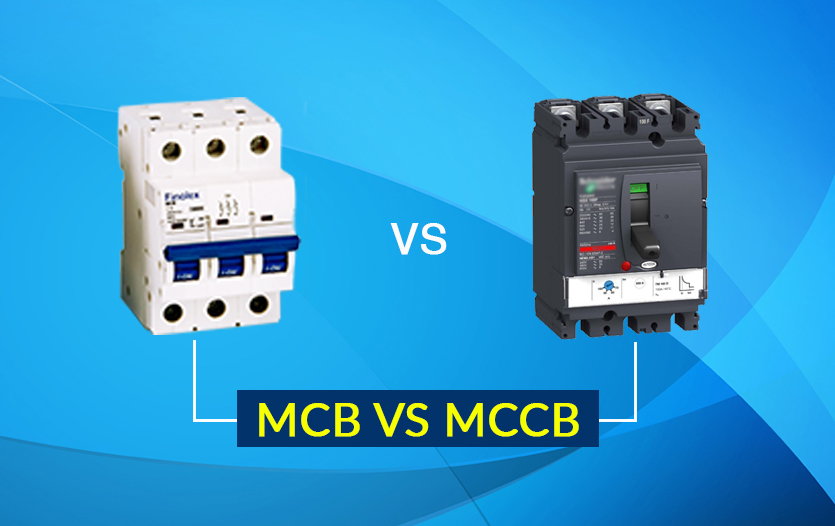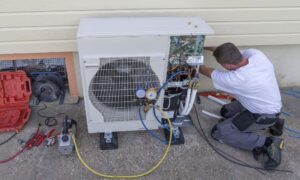
Regarding the safety of electrical systems, MCBs (Miniature Circuit Breakers) and MCCBs (Moulded Case Circuit Breakers) are two devices that should be considered. Although these two terms are often used interchangeably, they have important differences.
Understanding the differences between MCB and MCCB can help electricians decide which device would be more suitable for a particular situation.
While both devices have specific functions, MCBs are mainly used for low-voltage applications and to prevent short circuits. In contrast, MCCBs are used for high-voltage applications to prevent the overloading of circuits.
Let’s Talk About MCB
MCCB stands for Moulded Case Circuit Breaker, a circuit breaker that prevents electrical overload and damage to electrical equipment. An MCCB works by detecting excess current flow in an electrical system and automatically disconnecting the power supply when it is detected.
MCBs are typically used in residential homes and commercial buildings as an alternative to traditional fuses. They provide reliable protection from overcurrents that can lead to dangerous fires, an essential safety device that should be included in any well-designed electrical system.
MCCB: What Is It?
MCBs (Miniature Circuit Breakers) and MCCBs (Moulded Case Circuit Breakers) are circuit protectors. An MCB is designed to detect weaker current loads, while an MCCB detects both current and temperature settings, making it the better choice for industrial applications or larger commercial spaces.
Unlike MCBs which trip at a set point, MCCBs provide adjustable tripping capabilities, allowing users to choose settings with greater precision. Additionally, bimetallic MCCBs are available for running on both temperature and current settings.
Difference Between MCB & MCCB:
MCB (Miniature Circuit Breaker) and MCCB (Molded Case Circuit Breaker) are circuit breakers. The main difference is:
- Size:
MCBs are smaller in size than MCCBs.
- Capacity:
MCBs are designed for low-capacity circuits, typically up to 63 Amps, whereas MCCBs can handle higher-capacity circuits, up to thousands of Amps.
- Trip Characteristics:
MCBs have fixed trip characteristics, while MCCBs have adjustable trip characteristics.
- Cost:
MCBs are less expensive than MCCBs.
- Applications:
MCBs are typically used in residential and small commercial installations, while MCCBs are used in large commercial and industrial applications.
Benefits of MCB & MCCB:
The benefits of using MCBs (Miniature Circuit Breakers) and MCCBs (Molded Case Circuit Breakers) include the following:
- Protection:
MCBs and MCCBs protect against over-current, short-circuit, and ground faults.
- Easy Installation:
MCBs and MCCBs are easy to install, with simple wiring and quick-connect terminals.
- Safety:
Both breakers have high-quality moulded cases that provide electrical insulation and physical protection.
- Cost-effective:
MCBs are a cost-effective solution for low-capacity circuits, while MCCBs are a cost-effective solution for large commercial and industrial applications.
- Durability:
Both breakers are designed for long life, with high-quality materials and robust construction.
- Adjustability:
MCCBs have adjustable trip characteristics, making it easier to tailor protection to the specific needs of a circuit.
- Easy Maintenance:
MCBs and MCCBs can be easily replaced if they fail, minimizing downtime and maintenance costs.
Indoasian.com offers a variety of high-quality electrical systems, devices, and solutions for both home and industrial use, including MCBs (miniature circuit breakers), MCCBs (moulded case circuit breakers), and moulded case circuit breakers (MCCBs). With their wide selection of reliable products, you can be sure that you’ll find the right one for your needs!








